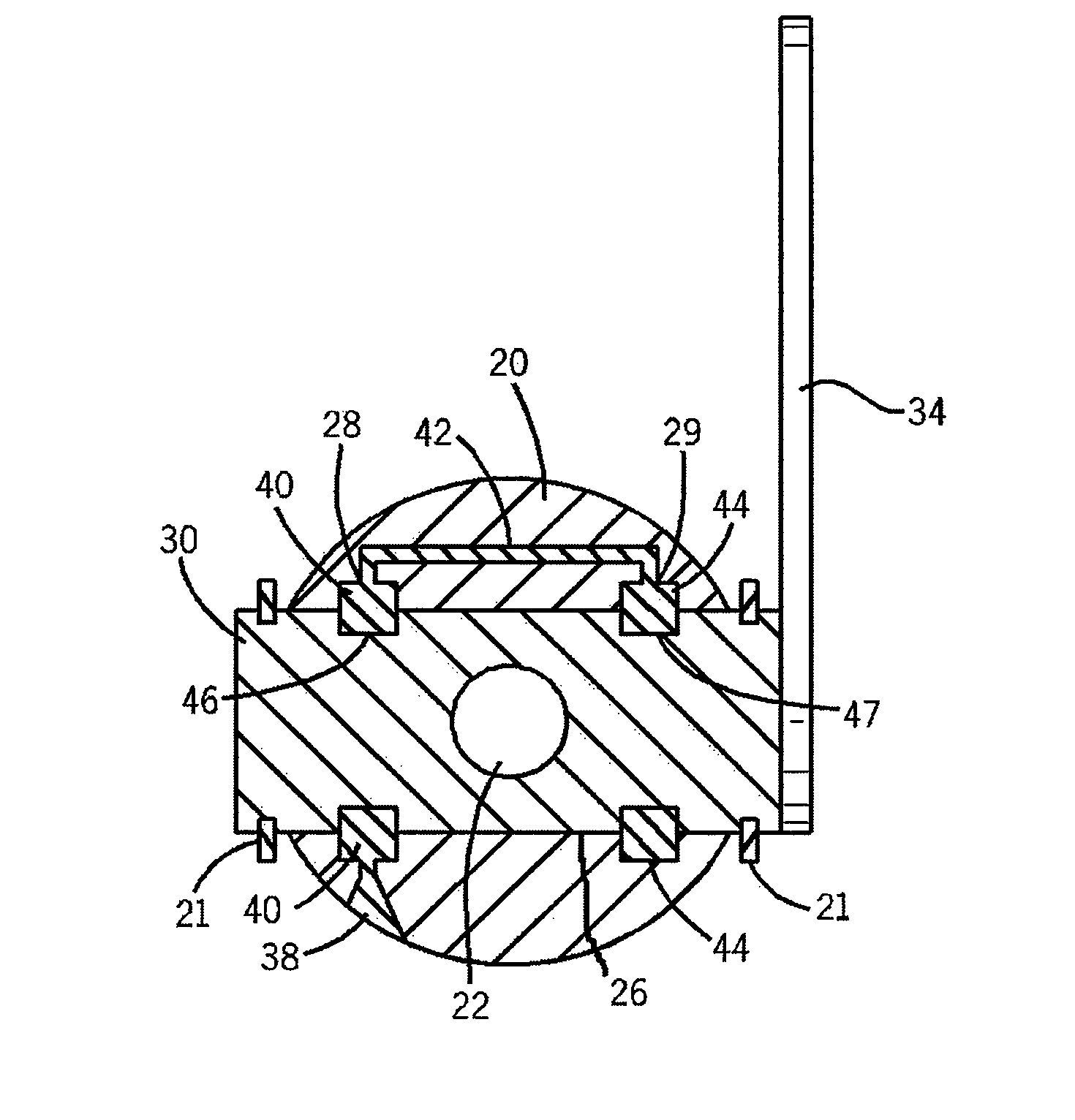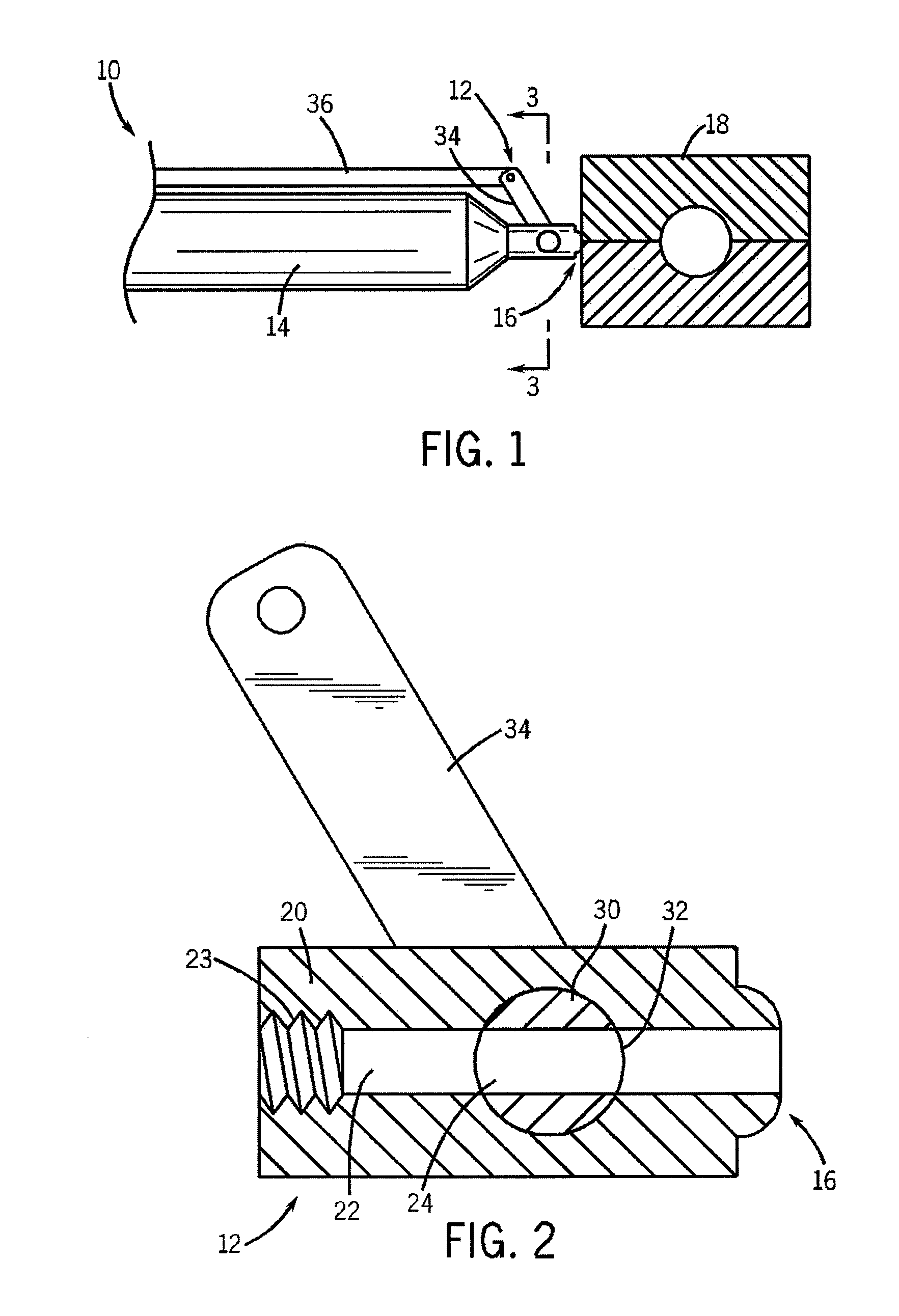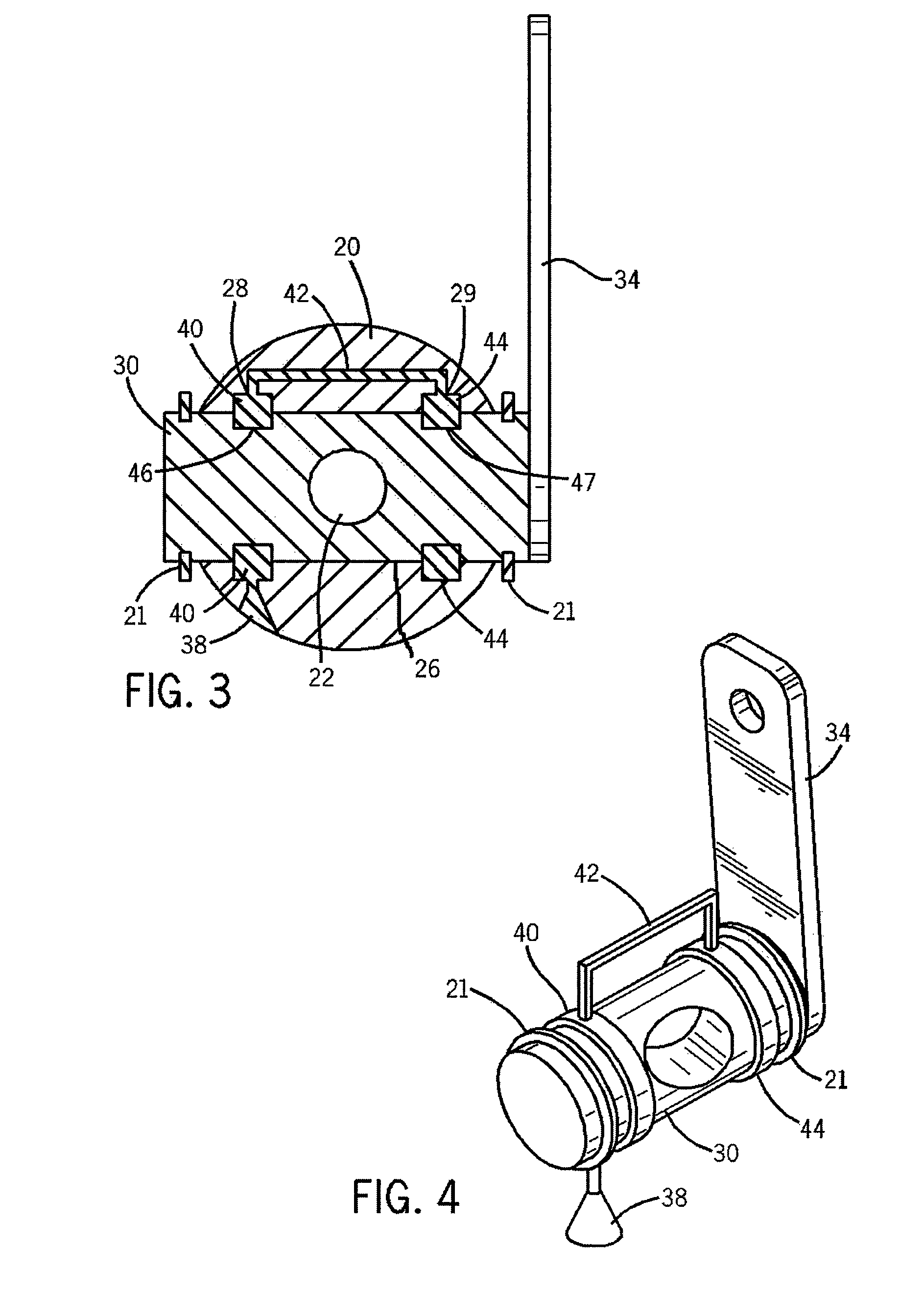Nozzle shutoff for an injection molding machine
a technology of injection molding machine and valve, which is applied in the field of valve for injector nozzle, can solve the problems of undesired leakage of pressurized thermoplastic material and undesired heat of thermoplastic material
- Summary
- Abstract
- Description
- Claims
- Application Information
AI Technical Summary
Benefits of technology
Problems solved by technology
Method used
Image
Examples
Embodiment Construction
[0027]Referring now to the drawings, and initially to FIG. 1, an injection molding system 10 is equipped with the valve 12 of the present invention. Injection molding system 10 includes a injector 14 for heating and ejecting molten the thermoplastic material. The injector 14 has a threaded nozzle that is attached to valve 12 that conducts firmer plastic material from the injector 14 to a nozzle 16. Nozzle 16 is configured to abut a mold 18 and to deliver the thermoplastic material under substantially high pressures and temperatures to the mold 18. Valve 12 regulates the flow of the thermoplastic material from the injector 14 to the nozzle 16 to the mold 18.
[0028]Referring now to FIGS. 2-4, the valve 12 of the present invention includes a housing 20 having a first bore 22 extending along the length of housing 20 to open at opposite ends of the housing 20 providing a channel therethrough between the injector 14 (not shown in FIG. 2) and the nozzle 16. A second bore 24 extends across t...
PUM
| Property | Measurement | Unit |
|---|---|---|
| length | aaaaa | aaaaa |
| width | aaaaa | aaaaa |
| pressure | aaaaa | aaaaa |
Abstract
Description
Claims
Application Information
 Login to View More
Login to View More - R&D
- Intellectual Property
- Life Sciences
- Materials
- Tech Scout
- Unparalleled Data Quality
- Higher Quality Content
- 60% Fewer Hallucinations
Browse by: Latest US Patents, China's latest patents, Technical Efficacy Thesaurus, Application Domain, Technology Topic, Popular Technical Reports.
© 2025 PatSnap. All rights reserved.Legal|Privacy policy|Modern Slavery Act Transparency Statement|Sitemap|About US| Contact US: help@patsnap.com



